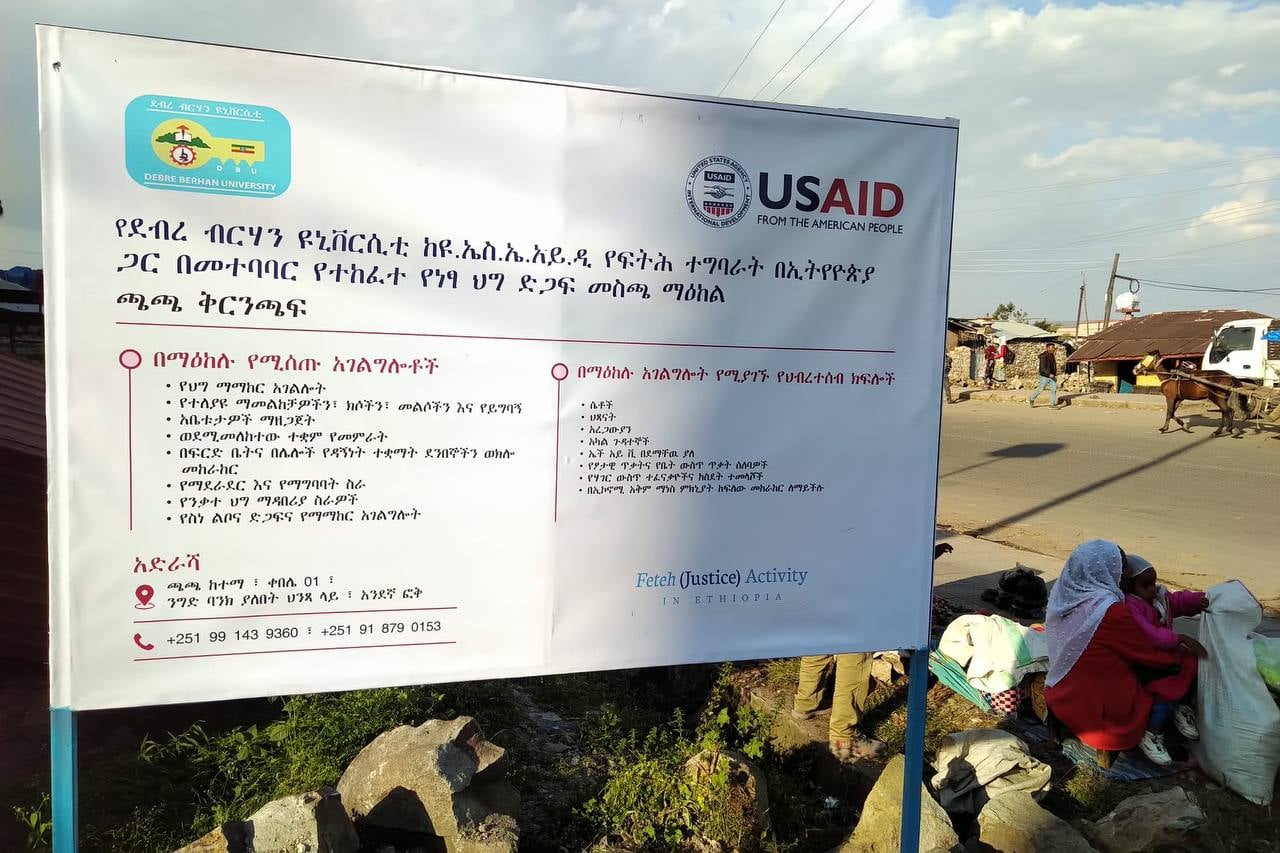Feteh Launches Two Free Legal Aid Centers for Ethiopia’s Most Vulnerable
04.10.2021
Ethiopia

The inability to pay should not inhibit access to justice and equality before the law. Ethiopia’s Constitution protects the right of the accused to legal representation stating that ‘accused individuals have the right to be represented by legal counsel of their choice, and if they do not have sufficient means to pay for it and miscarriage of justice would result, they are to be provided with legal representation at the state’s expense’.
USAID’s Feteh Activity in Ethiopia is working with constitutionally mandated democratic and human rights institutions, such as the Ethiopian Human Rights Commission, the Ethiopian Institution of the Ombudsman, and the Public Defender’s Office, to ensure their independence and ability to play a critical role in advocating greater human rights protection, monitoring abuses, increasing public awareness of human right issues and ensuring access to justice through legal aid services. In addition to this, last month, in cooperation with Debre Berhan University, Feteh opened two legal aid centers - in the cities of Debre Berhan and Chaha to provide free legal aid services to at least 1500 citizens from marginalized and vulnerable groups annually.
These centers will provide free legal counseling and litigation support to women, victims of domestic violence, children, persons with disabilities, the elderly, internally displaced persons, refugees, and persons with HIV/AIDS. These vulnerable groups have been identified as the most disadvantageous as they lack awareness on pursuing their rights before courts, as well as financial means to pay for representation and seek justice. The establishemnt of the two legal aid centers will add to the existing legal clinics in Ethiopia, helping to close the access to justice gap, and enhance capacities for pro bono counselling and representation, as well as psycho-social support to victims of gender-based and domestic violence.